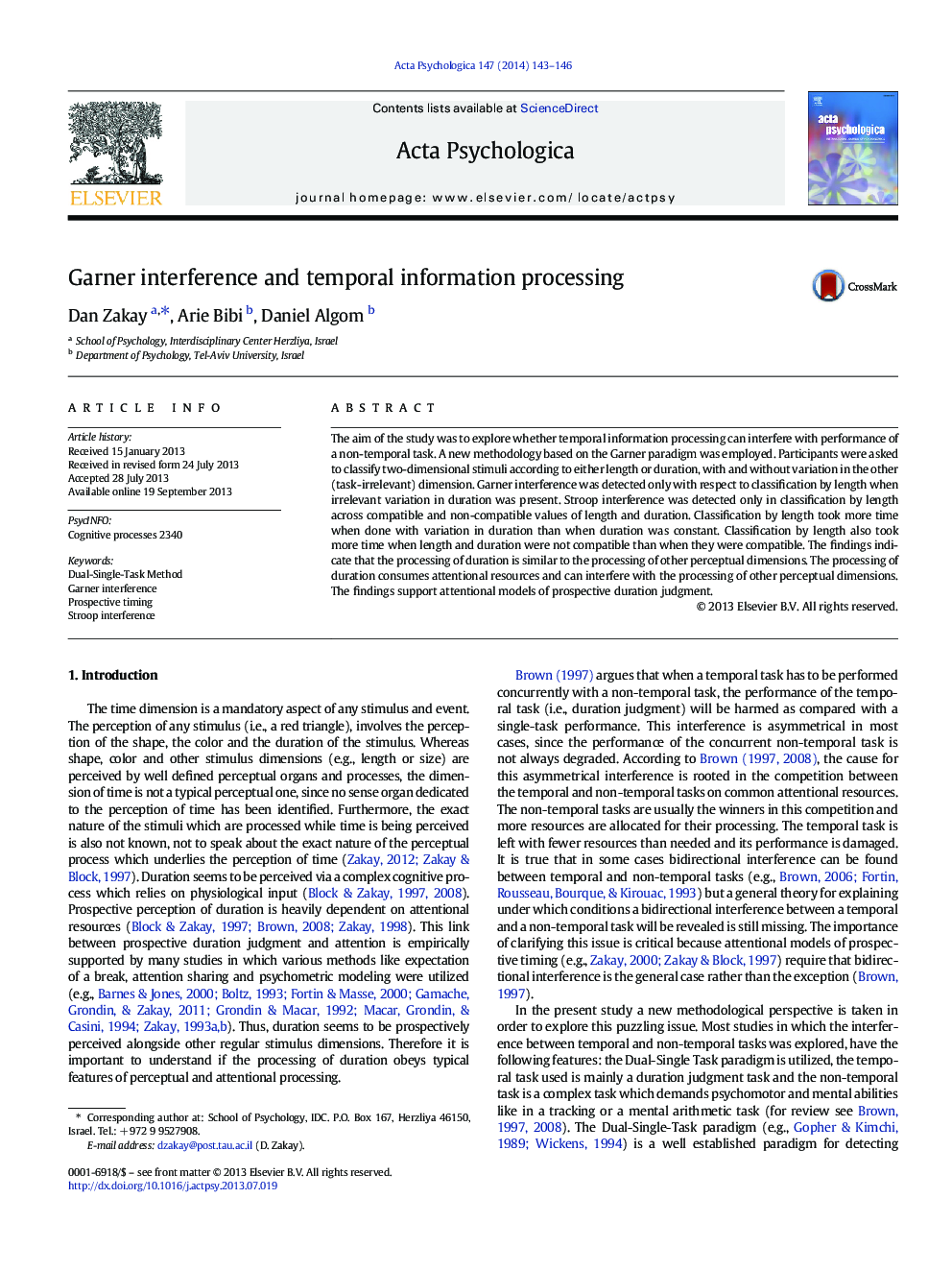| Article ID | Journal | Published Year | Pages | File Type |
|---|---|---|---|---|
| 7277960 | Acta Psychologica | 2014 | 4 Pages |
Abstract
The aim of the study was to explore whether temporal information processing can interfere with performance of a non-temporal task. A new methodology based on the Garner paradigm was employed. Participants were asked to classify two-dimensional stimuli according to either length or duration, with and without variation in the other (task-irrelevant) dimension. Garner interference was detected only with respect to classification by length when irrelevant variation in duration was present. Stroop interference was detected only in classification by length across compatible and non-compatible values of length and duration. Classification by length took more time when done with variation in duration than when duration was constant. Classification by length also took more time when length and duration were not compatible than when they were compatible. The findings indicate that the processing of duration is similar to the processing of other perceptual dimensions. The processing of duration consumes attentional resources and can interfere with the processing of other perceptual dimensions. The findings support attentional models of prospective duration judgment.
Related Topics
Life Sciences
Neuroscience
Cognitive Neuroscience
Authors
Dan Zakay, Arie Bibi, Daniel Algom,
